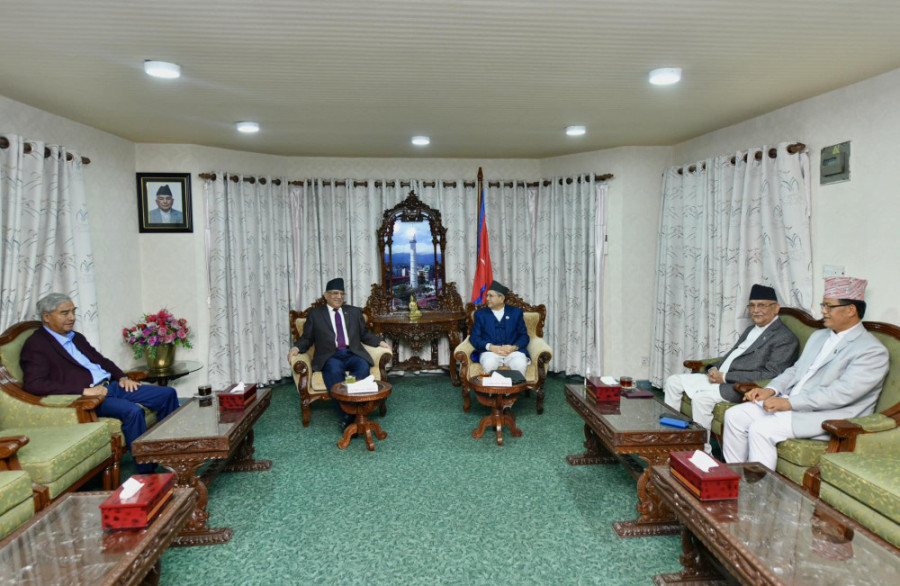Politics
Speaker prods parties to appoint chairs to parliamentary committees
12 parliamentary committees including two with representatives from both houses are currently headless.
Post Report
The ruling parties have agreed to elect the chairpersons for various parliamentary committees without further delay.
As the committees remain headless for a long time, Speaker Devraj Ghimire on Tuesday held a meeting with the top leaders of the three major parties to explain how ineffective the parliamentary committees have become in lack of leadership. It has been six months since the first meeting of the lower House and the committees were formed three months later. As a temporary arrangement, these panels are being led by their eldest members.
"I told the top leaders that I will start the election process, if they continue to dillydally with the appointments," said Ghimire, the Speaker of the House of Representatives. "They have assured me that all the parliamentary committees will get chairs very soon."
The Speaker held the meeting with the top leaders after his repeated requests to the chief whips and whips of the parties for the appointment of the chairs turned futile.
The federal parliament has 16 committees—10 in the House of Representatives, four in the National Assembly and two are common. All the panels from the upper house have got their chairpersons. However, the remaining 12 including two with representatives from both the Houses, are headless. Each committee has 23-25 members.
Prime Minister and CPN (Maoist Centre) chair Pushpa Kamal Dahal, Nepali Congress chief Sher Bahadur Deuba, CPN-UML chair KP Sharma Oli and law minister Dhanraj Gurung were present at the meeting with the Speaker.
Talking to the media after the meeting, Gurung said they are ready to move ahead in the spirit of the previous agreement. "We want to give a message that all parties are together to take House proceedings effectively," he said.
Earlier the ruling parties agreed to give the leadership of the three parliamentary committees including a joint committee and the Public Accounts Committee to the UML. The leadership of the remaining nine House committees will be divided among the ruling parties.
According to Shekhar Adhikari, press advisor to the Speaker, Ghimire informed the top leadership how the performance of the House committees have been hampered in the absence of chairpersons.
The seven ruling parties have yet to reach an agreement on sharing the committee leaderships. The chairpersons of the House committees get pay and perks on par with ministers of state.
In parliamentary democracy, the committees are set up to make the Parliament more effective. Their role increases when the House is ineffective or not in session. Not just the full House, parliamentary committees also have the responsibility to monitor the government’s actions and the functioning of other state bodies by bringing the executive’s decisions to the public domain, for national debate.
Generally, lawmakers file a number of amendments to the bills registered in Parliament. As the full House is constrained by time to discuss each of the bills in detail, they are sent to the respective parliamentary committees for discussion. For instance, the transitional justice Act amendment bill has received 28 revision proposals. It has been sent to the Law, Justice and Human Rights Committee for finalization. However, the committee is yet to give final shape to the bill though the government said it has given due priority to it.
"We have also agreed to finalise all the pending bills with high priority to the transitional justice bill," said Gurung. Amendment bills related to the Commission for the Investigation of Abuse of Authority Act and the Constitutional Council Act, among others, are pending in different House committees.




 9.83°C Kathmandu
9.83°C Kathmandu













